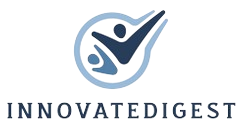How do I transition to a career in IT from another field?

Transitioning to a career in IT from another field can seem daunting, but with the right approach, it’s entirely achievable. Whether you’re coming from finance, healthcare, or any other sector, the key is to leverage your existing skills while acquiring new ones that are specific to the IT industry.
Understanding the IT Landscape
Before diving into the transition process, it’s crucial to understand the various areas within IT where you might want to specialize. The IT field is broad, encompassing several subfields including software development, network administration, cybersecurity, and data analysis.
| Subfield | Description |
|---|---|
| Software Development | Focuses on writing and maintaining computer programs. |
| Network Administration | Involves managing and maintaining computer networks. |
| Cybersecurity | Deals with protecting systems and networks from digital attacks. |
| Data Analysis | Involves interpreting complex data to aid business decision-making. |
Self-Assessment and Goal Setting
Start by assessing your current skills and defining your career goals. Identify what you enjoy doing and how it can be applied in the IT sector.
Questions to Ask Yourself
- What are my current skills and how can they be applied to IT?
- Which area of IT am I most interested in?
- What are my long-term career goals in the IT industry?
Gaining Relevant Skills and Certifications
Once you’ve pinpointed your area of interest, the next step is to gain the necessary skills and certifications. There are various online courses and boot camps that can help you get up to speed.
Resources for Learning
- Coursera and edX: Offers a variety of courses in different IT disciplines.
- Udemy: Affordable courses on specific skills like programming languages, cybersecurity, and more.
- Bootcamps: Intensive, short-term programs focused on hands-on learning.
Certifications to Consider
- CompTIA A+: Entry-level certification for IT technicians.
- Certified Information Systems Security Professional (CISSP): Advanced-level certification for cybersecurity professionals.
- Microsoft Certified: Azure Fundamentals: Certification for cloud computing skills.
Networking and Gaining Experience
Building a network in the IT industry can significantly enhance your job prospects. Attend industry events, join online forums, and connect with professionals in your desired field.
Ways to Network
- Attend IT conferences and meetups.
- Join LinkedIn groups related to your field of interest.
- Participate in online forums like Stack Overflow and Reddit.
Building a Strong Resume and Portfolio
Your resume should highlight your transferable skills and newly acquired IT competencies. A strong portfolio showcasing your projects can also make a significant difference.
Resume Tips
- Emphasize transferable skills relevant to IT.
- Include any certifications or courses you completed.
- Add links to your portfolio or GitHub repository.
Portfolio Tips
- Include a variety of projects to demonstrate versatility.
- Provide a brief explanation of each project and the technologies used.
- Keep the portfolio well-organized and easy to navigate.
Acing the Interview
Preparing for an IT interview involves brushing up on technical skills and preparing to discuss your transition story. Practice coding problems, system design questions, and get comfortable with explaining your motivations for switching fields.
Common Interview Topics
- Technical skills and problem-solving abilities.
- Behavioral questions about teamwork and adaptability.
- Your process for continuous learning and skill improvement.
Conclusion
Breaking into the IT field from another career path is challenging but rewarding. By focusing on skill acquisition, networking, and showcasing your strengths, you can make a successful transition. Remember, persistence and continuous learning are your best allies in this journey.
